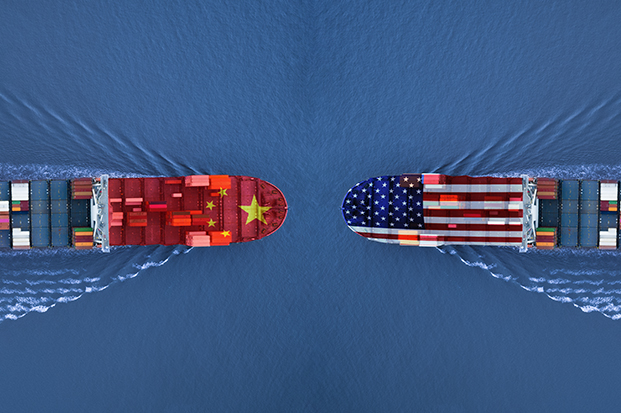What's ahead for the trade relationship with China under a Biden or Trump administration?
 Photo/Getty Images
Photo/Getty ImagesIn the run-up to the presidential election, BrandeisNOW asked faculty to provide analysis and insight into some of the most pressing issues facing the country. This is part of the series.
Even as President Trump escalates his attacks on China, the Biden campaign claims that, “Trump rolled over for the Chinese.”
In fact, both parties are hostile to China, so the election may have surprisingly little effect on U.S.-China relations.
But today’s hostility is heightened by the aggressive politics of our times and will eventually have to yield to more sustainable policies.
Trump unleashed?
If Trump is reelected, he will likely double down on attacks that make headlines.
He may take the fight into financial markets, delisting Chinese firms from U.S. stock exchanges and confiscating Chinese property in revenge for China’s supposed culpability for the pandemic. Welcome more volatility.
But such attacks are stiffening China’s resolve.
Most Chinese now believe that America simply wants to stop China’s development, giving President Xi Jinping even more reason to tighten his grip.
Investments have skyrocketed in “Made in China 2025,” a state-led project to develop advanced technology that the U.S. has often criticized.
It’s increasingly hard to see a coherent strategy behind the Trump administration’s approach.
Summarizing administration policy, National Security Advisor Robert O’Brien recently repeated the phrase “Chinese Communist Party” 22 times and concluded that “Xi Jinping sees himself as Josef Stalin’s successor.” He said little about actions that the U.S. wanted China to take.
When Trump has set goals — say, that China should cut its bilateral trade surplus with the U.S. to zero — they made little economic sense. The surplus is growing instead of falling.
A quiet turning point?
If Biden wins, reflexive escalations will end and civility may return, but he will vigorously push back on Chinese policies ranging from regional security to human rights.
Biden’s presidency may nevertheless open opportunities.
He has outlined plans to address China’s challenge constructively by investing in American technology, infrastructure and education.
He may replace some Trump tariffs and export bans that hurt U.S. businesses and consumers with policies that have fewer adverse effects on our own economy.
And he may gingerly encourage cooperation with China on health, education and science.
China may be receptive to this. It will take multilateral criticism from the U.S. and its allies more seriously and, in time, may join others in tackling common issues like climate change, cybersecurity and intellectual property rights.
The future
No one knows for sure where China is headed.
Is China pursuing — as Secretary of State Michael Pompeo says — a “decades-long desire for global hegemony of Chinese communism”?
If so, efforts to resolve tensions will end, soon enough, in confrontation. The great risk is unnecessary, premature war.
China is no democracy, but neither is it 1930s Germany or 1950s Russia.
After 50 years of largely peaceful change, China has built a huge, mainly private economy, eliminated most poverty, and created the world’s largest middle class. And it still has many domestic challenges to handle.
China has four times America’s population and its economy, now ¾ the size of ours, is growing much faster.
Despite well-founded concerns, the United States needs civil relations with the world’s second -- and eventually first -- superpower.
Peter A. Petri is the Carl Shapiro Professor of International Finance at Brandeis International Business School.
Categories: Business, International Affairs





